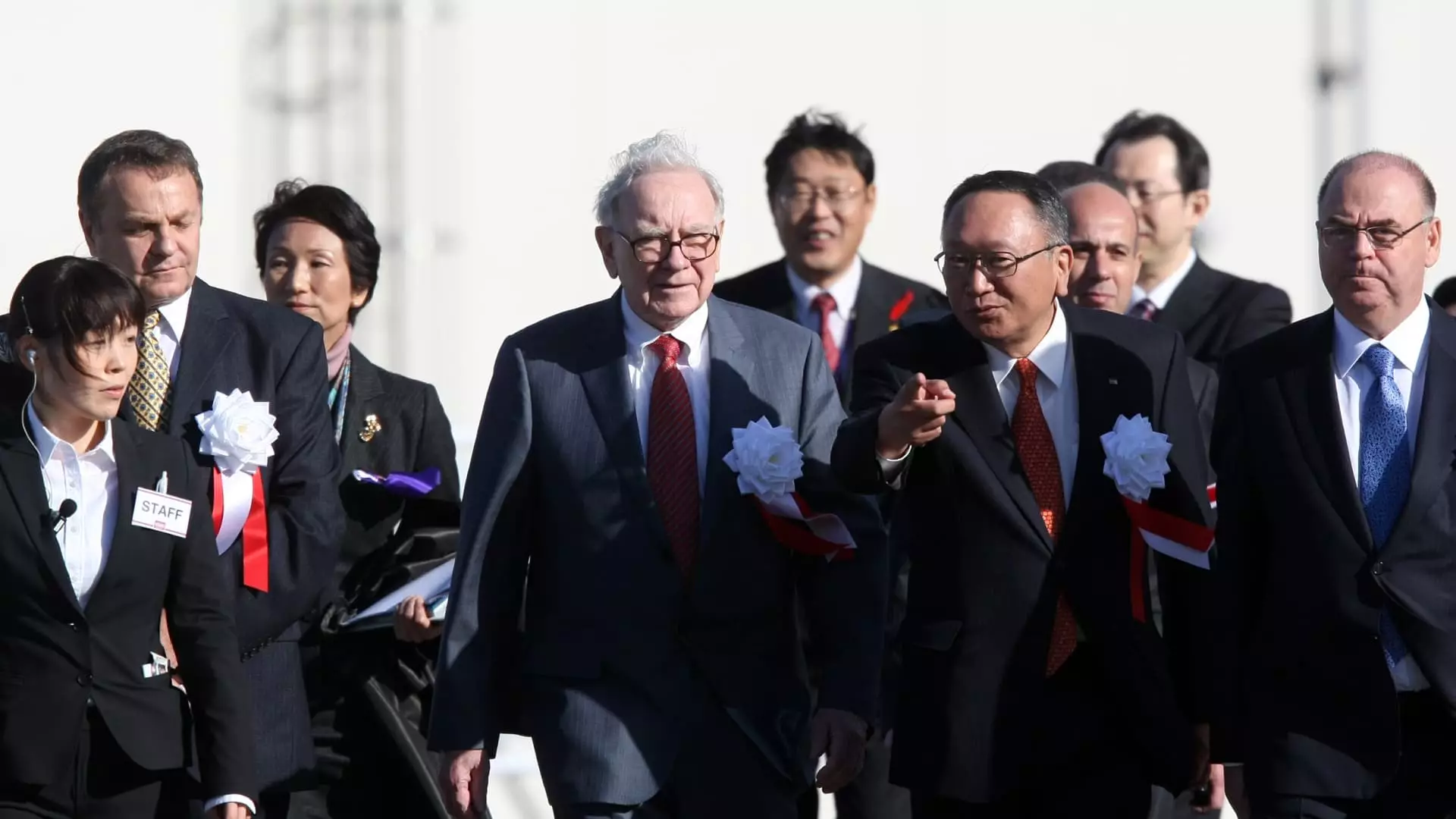Berkshire Hathaway has solidified its commitment to its Japanese investments, as articulated by Warren Buffett in his recent letter to shareholders. The company has negotiated terms to extend its ownership beyond an original cap of 10%. This significant movement indicates not just a financial maneuver but a strategic alignment with five major Japanese trading houses: Itochu, Marubeni, Mitsubishi, Mitsui, and Sumitomo. Buffett remarked that these companies, known as “sogo shosha,” parallel Berkshire’s diversified investment approach. This expansive vision represents a crucial step for Berkshire, as it seeks to integrate further into the Japanese market while also taking advantage of the unique qualities that these trading houses offer.
The data presented reveals intriguing financial implications, as Berkshire’s investment in these entities has transformed significantly since its inception in July 2019. By the end of 2024, Berkshire’s market value in Japan stood at a commendable $23.5 billion with a purchase cost of $13.8 billion. The impressive gains reflect not only the growth potential of these companies but also Buffett’s acute insight into capital allocation strategies. He praises the management of these trading houses, highlighting their established relationships with investors and their adept capital deployment strategies. This focus underscores Berkshire Hathaway’s foresight in selecting business partners that not only align with its values but also contribute to long-term financial success.
Buffett’s agile approach to managing currency risks has further buttressed this investment thesis. By selling Japanese debt to finance Berkshire’s stake in these companies and issuing yen-denominated bonds, Buffett has fortified his position against foreign exchange fluctuations. The financial gains from Japanese bonds—reported at $2.3 billion after tax—exemplify this strategic foresight. Coincidentally, this has resulted in a robust performance, with an impressive $850 million gain attributed to the dollar’s strength against the yen in 2024. Such insightful financial management is indicative of Buffett’s adaptive strategies, which are critical for navigating an unpredictable global economic landscape.
Looking ahead, Buffett foresees continuous value generation from these investments. He anticipates an annual dividend income averaging around $812 million, reflecting the robust cash flow that the trading houses are likely to generate. Moreover, Buffett confidently asserts that Greg Abel, his designated successor, will maintain a long-term perspective on these investments. He envisions that Berkshire will explore multifaceted ways to engage with these companies, fostering a collaborative environment that transcends typical investor-company dynamics.
Although some of these trading houses have experienced downturns—a notable 26% drop for Mitsubishi and over 8% for both Itochu and Marubeni—it underscores the volatility inherent in Japan’s economic landscape. However, Buffett maintains an optimistic outlook, reinforcing the idea that long-term investments, particularly in well-managed entities, tend to yield positive results. The integration of these trading houses into Berkshire’s diverse portfolio exemplifies a deliberate strategy of global expansion and financial robustness.
Berkshire Hathaway’s Japanese investments signify not just a financial strategy but an embodiment of Buffett’s core investment philosophy, combining patience with an adept understanding of market dynamics. As the company navigates these waters, its commitment remains clear: to engage in beneficial partnerships that promise long-term value creation.

